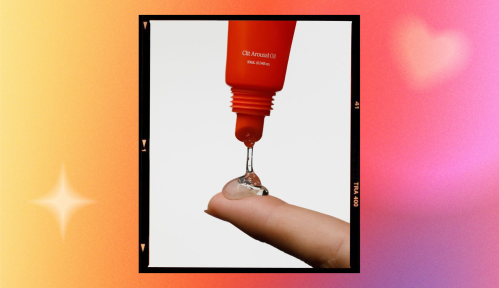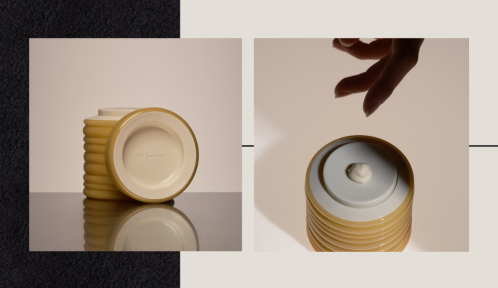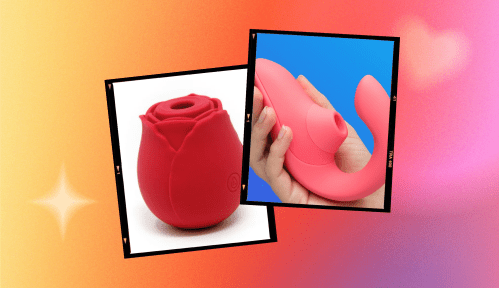Our editors independently select these products. Making a purchase through our links may earn Well+Good a commission
Eczema is typically worse during the winter months, when the cold, dry air ravages your skin barrier and leaves your complexion parched and irritated. So when summer rolls around, the humid weather should—in theory—provide a reprieve from these intense symptoms. But for some, that’s not the case. According to Jeffery Fromorowiz, MD, a board-certified dermatologist in Boca Raton, Florida, eczema can still flare in the summer, and tweaking your routine is the best way to keep your skin calm.
Experts in This Article
board-certified dermatologist based in Florida
“Eczema-prone skin has an impaired barrier function, and as a result, the skin does not retain water as well as those without eczema, so skin becomes dry and easily inflamed,” says Dr. Fromorowitz. If you live in an area with dry heat, the weather could be to blame. But if not, it may be time to take a hard look at your skin-care practices.
“Summer flares may occur because as people are more active and sweaty, they may shower more frequently and use harsher soaps that inflame their already sensitive skin,” says Dr. Fromorwitz. “Hot water can strip the skin of lipids involved in keeping it well hydrated. The use of detergent soaps also worsens this.”
The best thing you can do to manage eczema flares in the summer, then, is to make sure your showers are as skin-friendly as possible. Dr. Fromorowitz recommends using lukewarm (never hot!) water and a gentle, non-soap cleanser like the Dove Beauty Bar ($6) to prevent stripping.
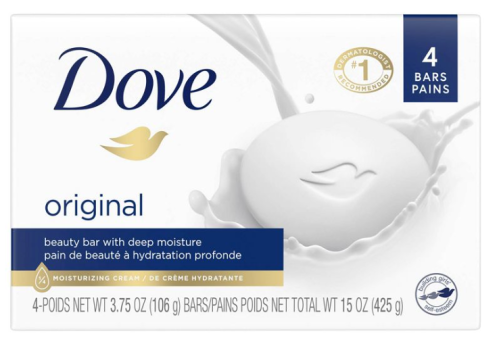
Dove Beauty Bar — $6.00
The second you step out of the shower, be sure to liberally apply moisturizer all over to lock in hydration. Consider using something fragrance-free like the La Roche-Posay Lipikar Eczema Soothing Relief Cream ($16). It’s soothing without being greasy, and employs colloidal oatmeal and niacinamide to calm the skin while shea butter aids in hydration.
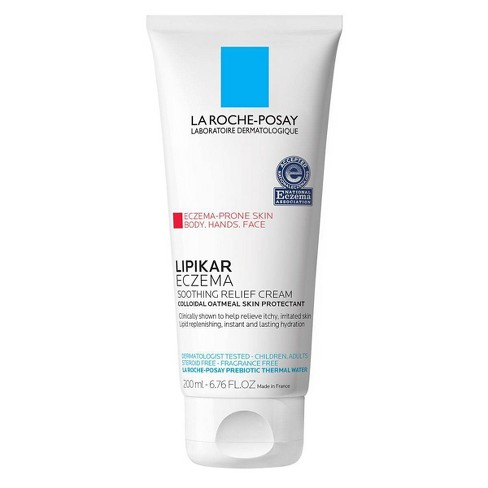
La Roche-Posay Lipikar Eczema Soothing Relief Cream — $16.00
Keep in mind that eczema is something you want to stay ahead of no matter the time of year.
“Eczema tends to be a chronic condition that requires lifelong practices to stay well,” says Dr. Fromorowitz. “Fortunately, there have been incredible advances in technology recently for its treatment. Should you need, please seek out the care of a board-certified dermatologist that is an expert in treating this skin condition.”
Learn about the best ingredients for dry skin:
Want to be the first to hear about the latest (and greatest) SHOP product drops, custom collections, discounts, and more? Sign up to have the intel delivered straight to your inbox.
Sign up for the Well+Good SHOP Newsletter
Get exclusive deals on wellness, beauty, fitness, and food products that have been hand-picked by our editors.
Got it, you've been added to our email list.




